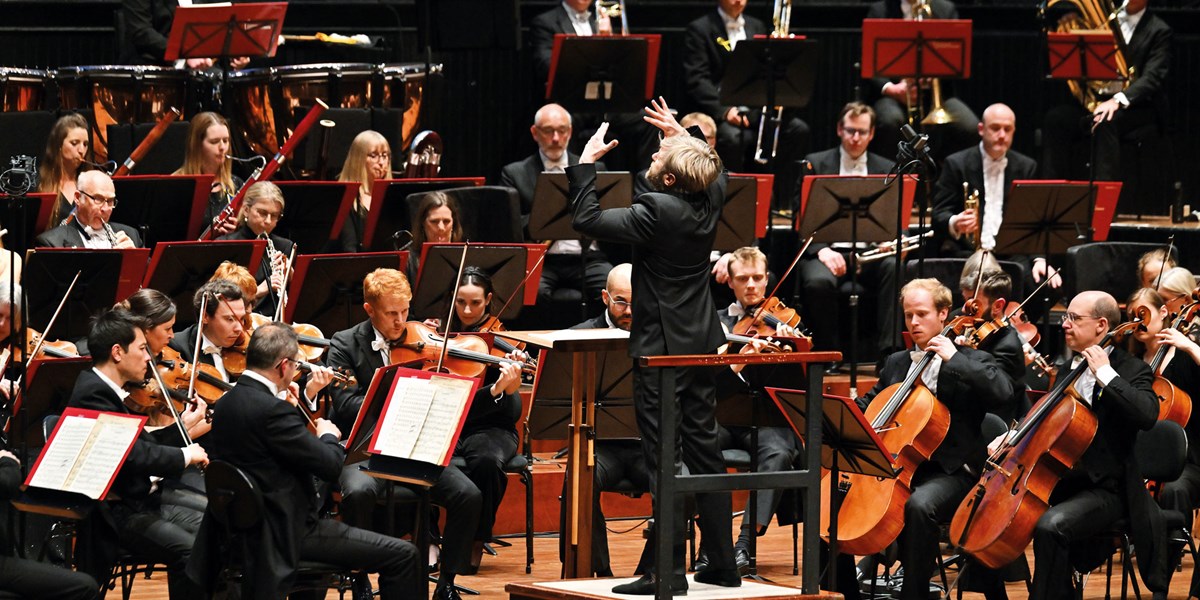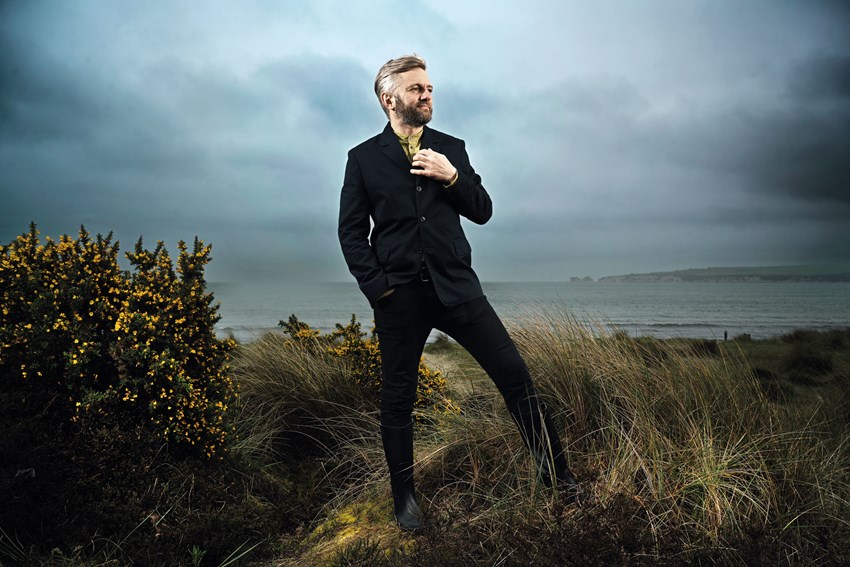Tuesday, February 27, 2024
Preview: Voices from the East at London's Southbank Centre (Advertorial)
Words by Simon Broughton; Photos by John Millar and Mark Allan

Voices from the East is a remarkable day of orchestral music conducted by Kirill Karabits with the Bournemouth Symphony Orchestra. The Ukrainian conductor has been the orchestra’s chief conductor for 15 years and he describes these Voices of the East pieces as their “identity card.”
In an unprecedented event Karabits brings highlights of this repertoire to the Southbank Centre for three concerts on a single day. And what’s interesting for Songlines readers is that most of these pieces draw extensively on folk and national traditions from the countries concerned – including Georgia, Armenia, Azerbaijan, Turkmenistan and Ukraine.
“These national traditions are essential to this music,” says Karabits. “We’re talking about a symphonic tradition which was part of the Soviet Union and the person who showed an example was Khachaturian, the father of that ‘eastern tradition.’ He took the national music tradition of Armenia, combined it with the modern symphonic tradition and created a style which was unique and rich in Armenian folk music. And that was an example for many other composers later, like Garayev, who did the same with Azerbaijani music, or Chary Nurymov from Turkmenistan. They basically used the western symphonic tradition through Mahler and Shostakovich and created something unique, each of them in a different way, using their own cultural identity and music.”

Kirill Karabits
The first of these composers Karabits recorded was Gara Garayev (1918-1982), who was a specialist in Azeri folk music as well as a prolific composer. He studied with Shostakovich and in the late 1940s and 50s wrote a number of colourful ballets and orchestral pieces which can indeed be seen as the Azerbaijani equivalent of Khachaturian’s popular scores for Gayane and Spartacus. “East and West co-existed in me,” said Garayev and a ballet like Seven Beauties, based on a poem by Nizami, is full of local colour.
One of the most striking of the pieces in Voices from the East is the 3rd Symphony by Armenian composer Avet Terterian (1929-1994), which has a central movement played by traditional instruments, the reedy zurna and duduk. The soft, plangent sound of the duduk is the most evocative in Armenian music and the slow movement has a drone duduk playing continuously with circular breathing for nearly nine minutes!
“It’s the most fragile and the most violent piece of music I’ve ever seen and heard in my life,” admits Karabits. “It has the softest ever moments and the loudest and most brutal. There’s certainly a reference to the [Armenian] genocide but there is no story and I don’t think he intended one.”
Karabits was brought up in a musical family in Kyiv. His father, Ivan Karabyts, was a composer who also founded the Kyiv Music Fest, an annual festival of contemporary music. That’s where Kirill Karabits first heard a lot of the music featured in Voices from the East.
The Terterian Symphony (of 1975) is performed alongside Styx by the Georgian composer Giya Kancheli (1935-2019), a friend of Terterian. It’s a deeply spiritual piece for solo viola, choir and orchestra, like the mythological Styx river, inhabiting a transitory world between life and death.
“Kancheli is thinking about friends and colleagues who have passed away and their names are sung by the choir – including Alfred Schnittke and Avets [Terterian]. It’s symbolic and very, very Georgian. His music is very theatrical.”
One of the Ukrainian composers Karabits has been performing is Boris Lyatoshynsky (1895-1968), who was one of his father’s teachers. Karabits recorded Lyatoshynksy’s 3rd Symphony with the BSO and is doing the 4th in Voices of the East. “I call him the key composer of Ukraine because he has a very strong identity,” the conductor explains. “There is a strong element of folk music there plus 19th-century and early Soviet traditions, but not only Russian music. He combined different European traditions and created something unique.”
But Voices of the East isn’t just about re-discovering forgotten masterpieces from the region, it’s also about new voices, so the day includes BSO commissions from Franghiz Ali-Zadeh and Anna Korsun, contemporary female composers from Azerbaijan and Ukraine respectively.
Since the Russian invasion of February 2022, there’s certainly been a growth of interest in music and artists from Ukraine. It’s something that Karabits has noticed, but certainly doesn’t want to exploit. “I would say there is now more room for Ukrainian music. But when you do Ukrainian music in that context, it’s very easy to fall into a sort of political self-promotion. People take Ukrainian music because there was an invasion. But what I’m always trying to do, and what we’ve always done with the BSO long before the invasion, is to show that Ukraine is a lot more than that. Ukraine has its own music tradition.”
You can see the Bournemouth Symphony Orchestra and conductor Kirill Karabits bring to life orchestral masterpieces in a day-long celebration of music from Ukraine and beyond at The Southbank Centre on Sunday, 19 May.
Tickets are available from £15 at: www.southbankcentre.co.uk

